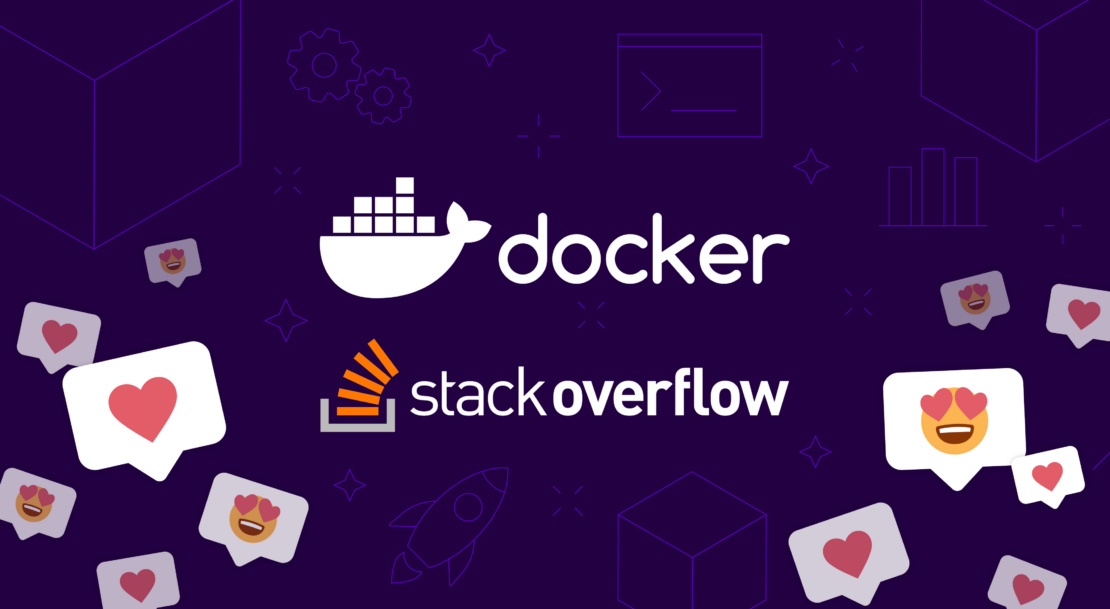Stack Overflow’s annual 2023 Developer Survey engaged nearly 80,000 developers to learn about their work, the technologies they use, their likes and dislikes, and much, much more. As a company obsessed with serving developers, we’re honored that Stack Overflow’s community ranked Docker the #1 most-desired and #1 most-used developer tool. Since our inclusion in the survey four years ago, the Stack Overflow community has consistently ranked Docker highly, and we deeply appreciate this ongoing recognition and support.
Giving developers speed, security, and choice
While we’re pleased with this recognition, for us it means we cannot slow down: We need to go even faster in our effort to serve developers. In what ways? Well, our developer community tells us they value speed, security, and choice:
Speed: Developers want to maximize their time writing code for their app — and minimize set-up and overhead — so they can ship early and often.
Security: Specifically, non-intrusive, informative, and actionable security. Developers want to catch and fix vulnerabilities right now when coding in their “inner loop,” not 30 minutes later in CI or seven days later in production.
Choice: Developers want the freedom to explore new technologies and select the right tool for the right job and not be constrained to use lowest-common-denominator technologies in “everything-but-the-kitchen-sink” monolithic tools.
And indeed, these are the “North Stars” that inform our roadmap and prioritize our product development efforts. Recent examples include:
Speed
Docker Init: Automatically generates Dockerfiles and docker-compose.yml files for Python, Node, and Go apps.
VirtioFS support: 98% reduction in database import time.
Docker Compose file watch: Automatically detects and syncs local host code changes with the container.
vpnkit => gVisor: 5X faster container-to-host networking performance.
Docker Scout: Automatically detects vulnerabilities and recommends fixes while devs are coding in their “inner loop.”
Attestations: Docker Build automatically generates SBOMs and SLSA Provenance and attaches them to the image.
Choice
Docker Extensions: Launched just over a year ago, and since then, partners and community members have created and published to Docker Hub more than 700 Docker Extensions for a wide range of developer tools covering Kubernetes app development, security, observability, and more.
Docker-Sponsored Open Source Projects: Available 100% for free on Docker Hub, this sponsorship program supports more than 600 open source community projects.
Multiple architectures: A single docker build command can produce an image that runs on multiple architectures, including x86, ARM, RISC-V, and even IBM mainframes.
What’s next?
While we’re pleased that our efforts have been well-received by our developer community, we’re not slowing down. So many exciting changes in our industry today present us with new opportunities to serve developers.
For example, the lines between the local developer laptop and the cloud are becoming increasingly blurred. This offers opportunities to combine the power of the cloud with the convenience and low latency of local development. Another example is AI/ML. Specifically, LLMs in feedback loops with users offer opportunities to automate more tasks to further reduce the toil on developers.
Watch these spaces — we’re looking forward to sharing more with you soon.
Thank you!
Docker only exists because of our community of developers, Docker Captains and Community Leaders, customers, and partners, and we’re grateful for your on-going support as reflected in this year’s Stack Overflow survey results. On behalf of everyone here at Team Docker: THANK YOU. And we look forward to continuing to build the future together with you.
Learn more
Get the latest release of Docker Desktop.
Vote on what’s next! Check out our public roadmap.
Have questions? The Docker community is here to help.
New to Docker? Get started.
Quelle: https://blog.docker.com/feed/

Published by